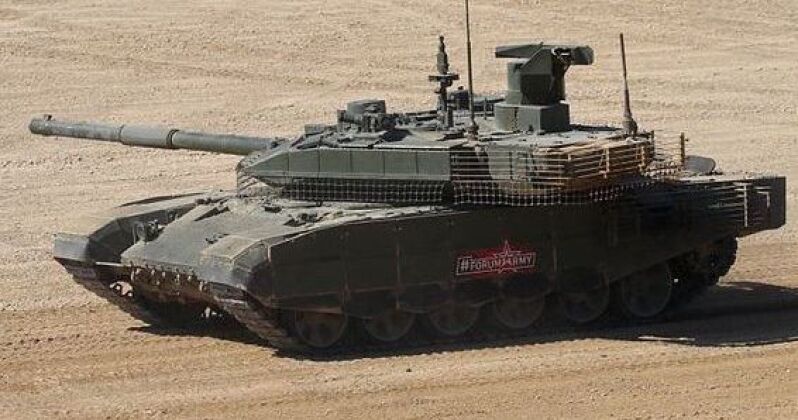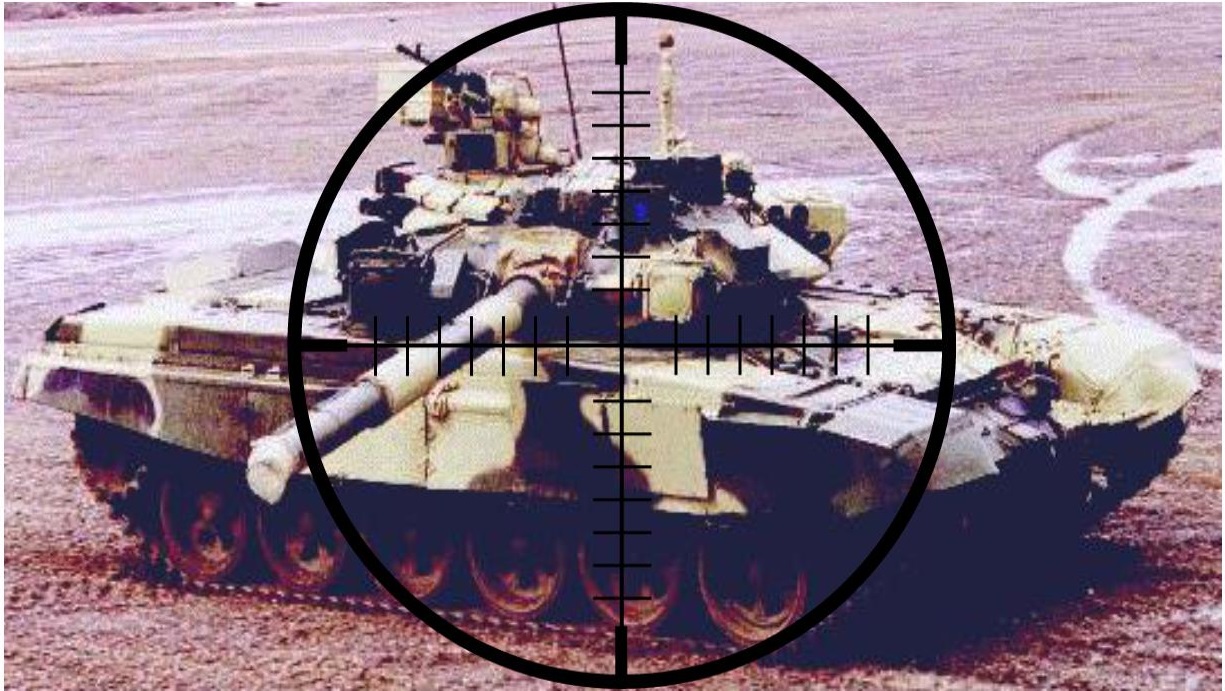Ukrainian Army could soon have its second Russian-made T-90M “Proryv” tank deployed against the Russian forces. The T-90M is Russia’s most advanced main battle tank that has been deployed in its special military operation in Ukraine.
However, in September, Kyiv’s forces captured a T-90M during their counter-offensive in the Kharkiv region, apparently abandoned by its crew after an attack. Less than two months later, the Ukrainian army reportedly fielded T-90M against the Russian forces.
Announcement
The newest russian tank T-90M was found in Kharkiv region in perfect condition. We ask its owner(s) to contact the #UAarmy . Please identify yourself by a sign: a white flag. pic.twitter.com/Lo1KeOtepS— Defense of Ukraine (@DefenceU) September 18, 2022
Recently, Ukrainian forces captured another T-90M tank in the Luhansk region. Ukrainian forces on social media shared the video of the captured tank.
Judging by the video, the tank does not appear to have suffered significant damage, unlike the first one captured in September.
#Ukraine: Another example of the most advanced Russian tank deployed in Ukraine, the T-90M, was captured by the Ukrainian army in the East. pic.twitter.com/ACyEyIsqJy
— 🇺🇦 Ukraine Weapons Tracker (@UAWeapons) December 3, 2022
Therefore, perhaps the Ukrainian army could begin using this T-90M shortly.
Upgraded T-90M Main Battle Tank
The Uralvagonzavod-designed T-90M is an upgraded version of the T-90 Tank, first introduced in the early 1990s as an offshoot of the T-72, featuring improvements in protection and mobility, and firepower.
The tank is sometimes referred to as “Proryv-3” (Breakthrough-3).
Reports suggest the upgrades to the tank were derived from the combat experience of the Russian Armed forces gained in Syria. The Russian Army tested it during the military exercise Zapad-2017.
The upgraded T-90M tank has improved armor protection with Relikt built-in Explosive Reactive Armor (ERA) in place of the previous Kontakt-5, designed to protect shaped charges and significantly reduce the impact of the armor-piercing fin-stabilized discarding sabot (APFSDS) rounds.
In addition, the tank features net armor on the lower part of its turret and slat armor at its rear to improve its defenses against rocket-propelled grenades by disrupting the fusing of the warhead.

The tank also has a countermeasures system, which triggers smoke grenade launchers that can help conceal the vehicle if illuminated by a laser beam, thereby minimizing the chance of being hit by enemy anti-tank-guided weapons with semi-automatic guidance.
It is fitted with NBC (Nuclear, Biological & Chemical) protection and automatic fire suppression systems. The tank’s interior is lined with spall liner to stop projectiles and small fragments and minimize the damage inside the vehicle in case of a hit by an overmatched threat.
The T-90M boasts an improved 2A46M-4 125mm smoothbore main gun, which has a longer range and is said to be 15-20% more accurate than the standard 2A46M gun of the T-90.
The gun can fire APFSDS, HE, and HE-FRAG rounds, and the 9M119 Refleks anti-tank guided missiles with a range of 4-5 kilometers. It can also engage low-flying helicopters. The main gun carries a total of 43 rounds, including missiles.
The secondary armament includes a coaxial 7.62mm machine gun and a roof-mounted remotely-controlled weapon station armed with a 12.7mm heavy machine gun.
The turret has an automatic carousel loader mounted on the floor and rear wall. The carousel carries 22 ready-to-use projectiles.
The primary sensor and fire control enhancements are at the heart of the tank upgrades. The new Russian tank has a hunter-killer engagement capability.
The tank commander uses a panoramic sight with thermal vision to search for targets. Once the target is selected, the gun is laid on the target automatically, and the gunner completes all the aiming and firing processes.
Meanwhile, the commander can look for the next target. Also, the target acquisition system tracks selected targets automatically.

Captured T-90M Revealed New Details
The T-90M captured by the Ukrainian forces in September also revealed some exciting details about the T-90M’s upgrades.
Ukrainian forces released images of the interior of the tanks, which showed Russia’s all-new homegrown gunner’s sight, known as PNM-T.
The T-90M captured in Ukraine is more special and rare than at first glance. It features a brand new gunner’s sight named “PNM-T” made using only domestic components. Few have it
Read more about it here:https://t.co/80UWu8K0Y1https://t.co/xlexk9udYk#Ukraine #UkraineRussiaWar pic.twitter.com/HuzsFn1zzj
— Kontakt6 (@Kontakt642) September 18, 2022
The PNM-T was developed as part of an initiative to reduce the reliance of the Russian military-industrial complex on Western technology following the Western sanctions imposed on Russia after it annexed Crimea in 2014.
It was introduced around 2018 or 2019 and is said to be a fully Russian sighting system, unlike the Sosna-U system previously installed on the T-90M, which relied, to a certain extent, on parts from the French Thales company.
Apart from that, the T-90M captured in September was also outfitted with Nakidka radar-absorbent material (RAM), which is said to reduce the vehicle’s infrared, thermal, and radar signatures.
This RAM is meant to shield the T-90M from NATO’s airborne radars that track Russian vehicles at long range and defend the tank against guided weapons reliant on thermal imaging to lock onto a target.
As per the estimates, Russia only had around 100 operational T-90Ms in the service when it launched an invasion inside Ukraine in late February.
In May, Uralvagonzavod delivered a new batch of the latest T-90Ms and some old T-90 tanks that were upgraded to this level, according to a report by the state-owned TASS news agency, which did not specify the number of tanks delivered.
The early evidence that Russia may have deployed some of its limited number of T-90Ms to the conflict started emerging in April.
The first appearance of a Russian T-90M tank in Ukraine. The video is from Rosgvardia showing a number of destroyed Ukrainian vehicles in Kharkhiv Oblast and Rosgvardia spetsnaz.https://t.co/uyInBJo5Ii pic.twitter.com/oZ73oqD1KE
— Rob Lee (@RALee85) April 25, 2022
A video released by the National Guard of Russia (Rosgvardia) on April 25 revealed a crudely concealed T-90M tank in Kharkiv Oblast.
Since then, the Russian military has lost at least six T-90M tanks, as per the latest figures compiled by the military tracking blog Oryx based on visual confirmations. Two were destroyed, two were captured, and the rest were damaged and abandoned.
The first confirmed instance of a T-90M tank destroyed was recorded on May 4 in Kharkiv Oblast.





